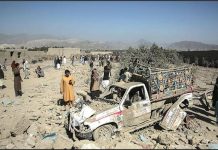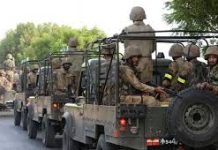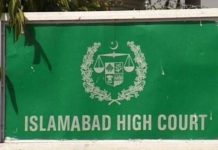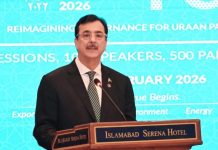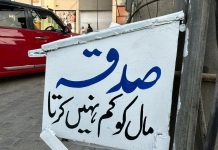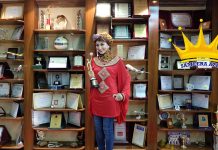http//: www.thenewslark.com
email:drmehboob.thenewslark@gmail.com

By Dr. Syed Mehboob
Research Scholar, Analyst
Bahrain is an Island country in West Asia and situated on the Persian Gulf, and comprises a small archipelago made up of fifty natural Islands and an additional 33 artificial Islands, centered on Bahrain Island which make up 83 percent of the country’s landmass. Bahrain is situated between Qatar and the northern coast of Saudi Arabia, to which it is connected by the King Fahad Causeway. Bahrain span 760 square kilometers and is the third smallest country in Asia after Maldives and Singapore. Manama is its capital and the largest city. Bahrain is the earliest areas to be influenced by Islam, during the lifetime of Prophet Muhammad (Peace upon him) in 628 A.D
It is ruled by Al Khalifa royal family, with Ahmed Al Khalifa Bahrain’s first one.
Bahrain developed the first post oil economy in the Persian Gulf. The result of decades of investing in the banking and tourism sectors, many of the world’s largest financial institutions have a presence in the country’s capital. It is recognized by the World Bank as a high-income economy.
Bahrain does not share land boundary with any other country but does have a 161 km coastline.
Sheikh Hamad bin Isa bin Salman Al Khalifa is king of Bahrain since 14thFebruary, 2002. Bahrain has established bilateral relations with 190 countries worldwide. It maintains network of 25 embassies. It is also the founding member of Gulf Cooperative Council (GCC). According to a January 2006 report by the United Nations Economic and Social Commission for Western Asia (UNESCWA), Bahrain has the fastest growing economy in the Arab World. Bahrain also has the freest economy in the Arab World and the twentieth freest all in the world base published by World Heritage Foundation. In 2008, it was ranked the world’s fastest growing financial centers Index ( GFCI ) . Bahrain’s banking and financial services sector, particularly Islamic banking, have benefited from the regional boom driven by demand for oil. Petroleum is Bahrain’s most exported product accounting for 60 % of export proceeds, 70% of government revenue and 11% of GDP. Aluminum with second most exported product, followed by finance and construction materials.
There is a greater chance to enhance Pakistan Bahrain mutual cooperation in the sectors including political, defence, economic, commerce, finance and banking, industry, public health, overseas employment, higher education, Islamic banking, science and technology, information technology, culture and arts, media, agriculture and livestock, cultural cooperation, and parliamentary exchange. Pakistan has adopted a very liberal and investment friendly policies, which provides no restrictions on remitting capital. All sectors are open for investment and equal treatment is given to local and foreign investors. Pakistan need Bahraini investment in various sectors. In regards to promoting trade and business development, some sectors of interest include manufacturing, financial services, tourism, healthcare and education, logistics, information and communication technology and vocational training. Bahraini investors can invest in Special Economic Zones (SEZs). The Volume of bilateral trade between the two countries stood at US$ 117.23 million in 2019-20. Pakistan’s export to Bahrain include rice, cotton yarn, textured yarn, printing ink etc. Whereas major imports from Bahrain include ferrous waste and scrap, iron steel and petroleum bitumen.
In October 2008 His Majesty King Hamad bin Isa Al Khalifa launched “The Economic Vision 2030 “for Bahrain’s economic development and progress which provided a clear direction for the continued development of the Kingdom’s economy and at its heart, is a shared goal of building a better life for every Bahraini. The Economic Vision 2030 focuses on shaping the vision of the government, society, and economy, based around three guiding principles; sustainability, fairness and competitiveness.
The guiding Principles of the Economic Vision 2030 are sustainability, competitiveness and fairness.
Sustainability
A considerable share of the country’s growth over the last two decades was driven by the public sector. This model is running out of steam, as government finance become tighter and competition increases in a global economy. By 2030, the private sector should be able to drive economic growth in Bahrain independently. Bahrain’s vision sees the economic prosperity built on a firm foundation. Government finance will adhere to the principle of sustainability, upholding a system that is stable and forward looking. Bahrain will use its resources to invest in the future, improving its human capital through education and training, particularly in the field of applied sciences. In a world where modern technology and new competitors from across the globe are continually shortening product lifetimes, entrepreneurship, and innovation will ensure the sustainability of a vibrant private sector. But the economic growth must never come at the expense of the environment and the long termwellbeing of the people. Every effort will be done to protect Bahrain’s environment and preserve the kingdom’s cultural heritage.
Competitiveness
Bahrain will attain a high level of competitiveness in a global economy. Increased productivity comes about much more naturally in a competitive environment, driving economic growth, profitability, and wages. Only high and continuously improving productivity requires people with the right skills for each position. To be competitive; Bahrain will go to great lengths to educate their people, retain qualified staff, and attract foreign workers with the skills that are lacking. The key objective is to make Bahrain a great place to do business for both local and foreign companies. Many factors combined to make a country attractive to investors in high value-added industries; a high-quality public service, a cutting-edge infrastructure, and an appealing living environment are among.
Fairness
Bahrain’s Vision is that the country’s future economic success will impact society more widely, creating a broad base of prosperity. Every individual can make a worthwhile contribution to society, given the means and presented with the opportunity. For fairness to be nurtured, all transactions made by both the public and private sector must be transparent. Free and fair competition should prevail, with private and public activities taking place in the open, whether they concern employment, land for public auction or the outcome of a tender. The role of Bahrain is to provide the legal and regulatory framework that ensures the protection of customers and fair treatment for business owners including foreign investors. This means stamping out corruption and seeing the laws are justly enforced. Fairness in society means that all are treated equally under the law, in accordance to international human rights; and that everyone has equal access to services, namely education, and health care, and that the needy are supported via adequate job training and a targeted approach.
Bahrain has also chalked out a comprehensive E government Action Plan which aims to
- Invest in citizens through enhancing, improving and sustaining the government services in education, health and other sectors.
- Create a safe and stable society
- Enhance the sustainable, comprehensive development to achieve fiscal balance and maintain positive economic growth
- Support the private sector to become the most significant motive in the development to create quality opportunities for citizens and investors
- Establish rules for optimal use of resources and ensure its sustainability for the next coming generations.
- Sustain social and economic development by adopting legislation and initiatives supporting family stability and achieving gender equality
- Continue financial development projects and infrastructure enhancing growth and serving citizens.
- Redefine the role of the public sector from the main driver to regulator and partner, developing and facilitating the government procedures
- Support creativity, excellence, the role of woman, youth, and sports in all government programs and initiatives
- When Bahrain creates a stable society, this will lead to a sustainable community. Positive economic growth, economic development, gender equality, better education system and creativity, are present in the Sustainable Development Goals 2030(SDGs)
Bilateral trade volume between Pakistan and Bahrain in Financial Year 2021-22 has surged by almost 400% as compared to 2019-20, as it was recorded at US$ 595.12 million in FY 22; whereas it was US$ 119.95 million in FY 20 however, the bilateral trade balance is in Bahrain’s favour. Pakistan possesses considerable potential for exports to Bahrain; and the potential for key commodities includes plastics and articles US$ 418.43 million, pharmaceuticals US$ 313.33 million, optical and photographic instruments US$ 220.024 million,furniture US$ 190.87 million, edible fruits and nuts US$ 189.17 million and salt, Sulphur, earth and stone US$ 159.33 million. There is needed serious efforts to protect Pakistani brands as Pakistan is suffering on account of its products being sold in GCC and other countries after getting rebranded with a third country name; and , the phenomenon is making Pakistani products and sell with their own name. Pakistani Chambers of Commerce and Industry should have strong ties with Bahraini Chambers of Commerce and Industry. Pakistani skilled and well qualified human resource can serve better their Bahraini brethren as they are available at competitive price than many other countries. Pakistan can enhance its IT export to Bahrain.
In a nut and shell both countries have excellent opportunities to enhance their ties especially in trade and ivestment.

